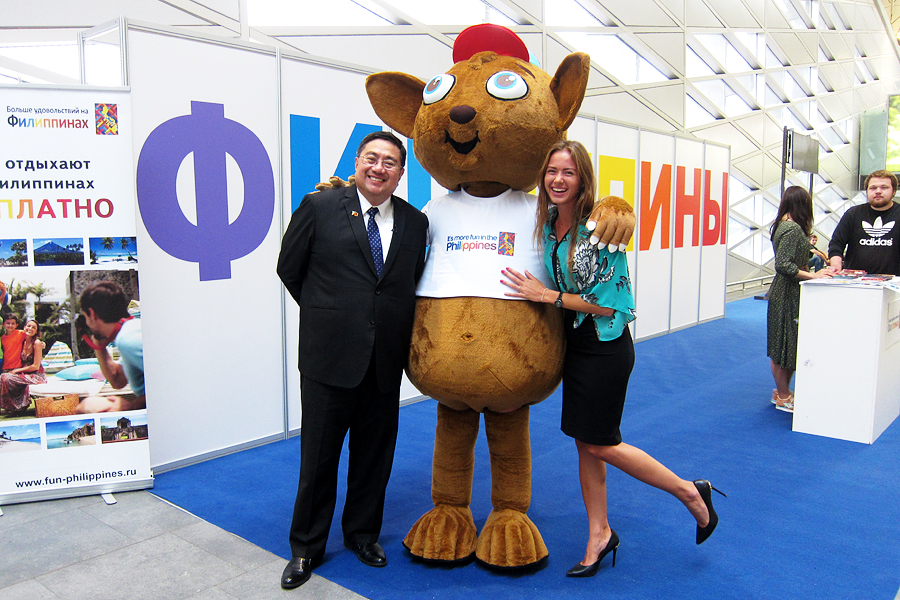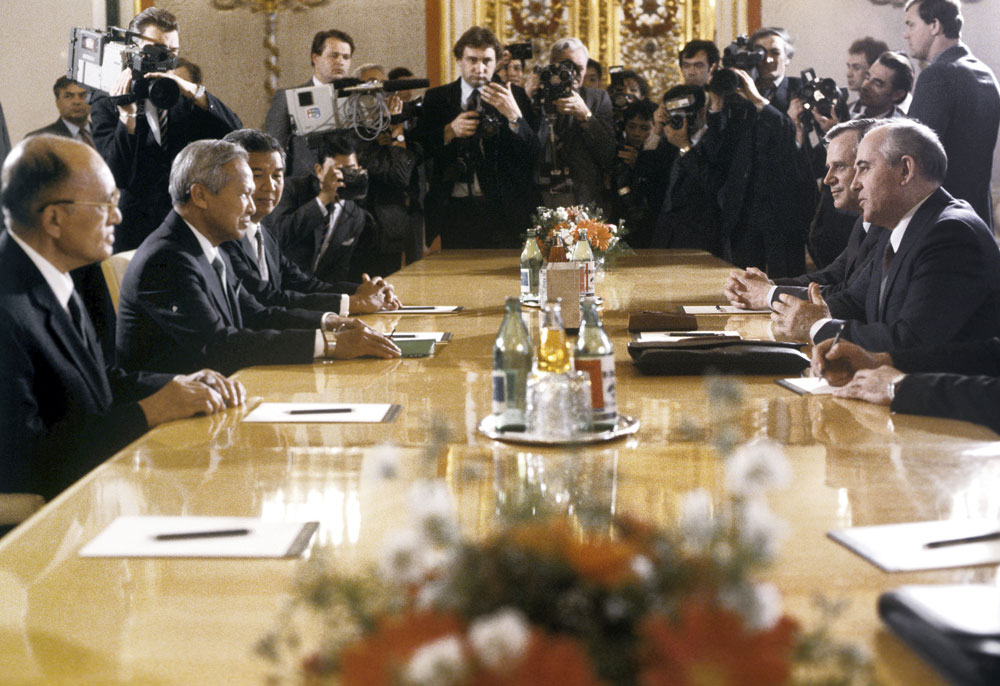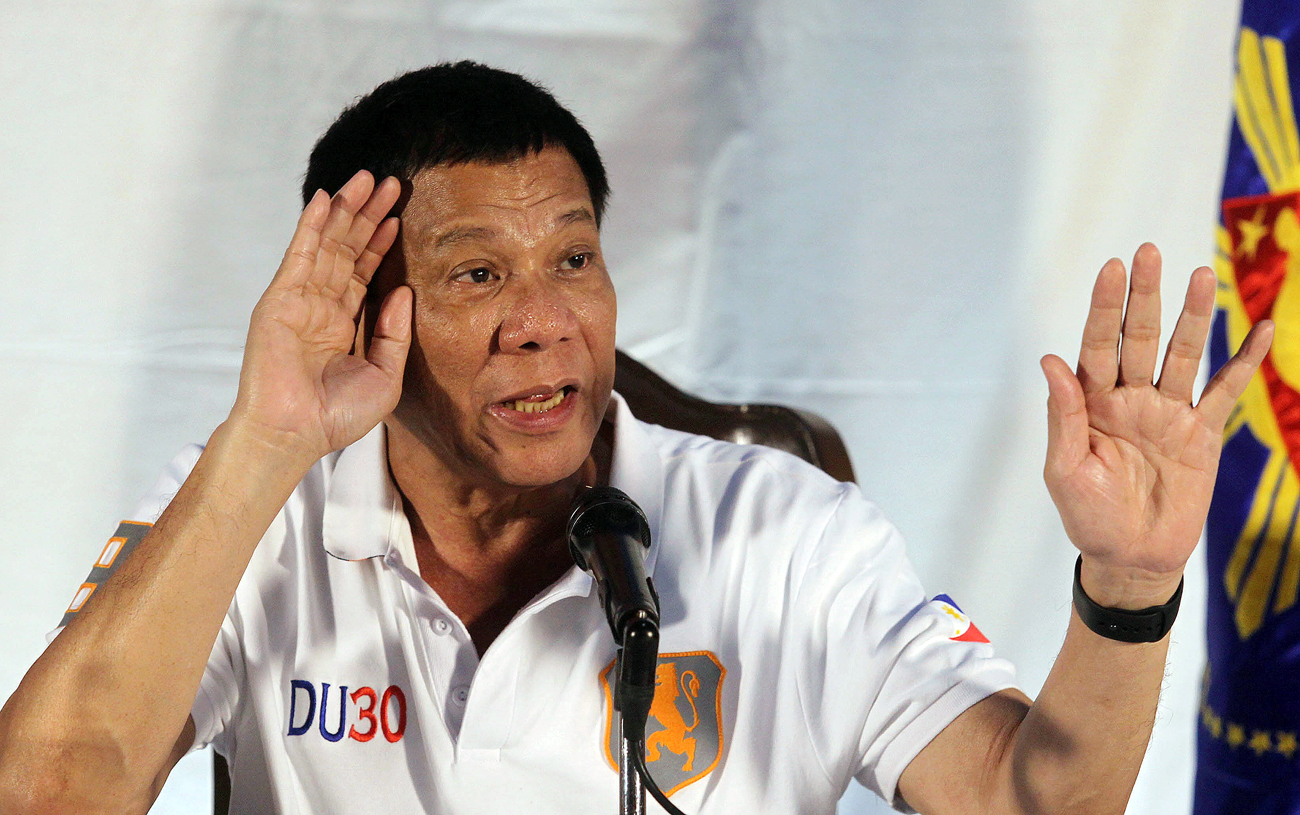Chicken, alligator and bananas: Moscow, Manila look to step up trade

Russia is an importer of alligator meat from the Philippines.
Alamy / Legion-Media Carlos D. Sorreta, Ambassador of the Philippines to Russia / Press photo
Carlos D. Sorreta, Ambassador of the Philippines to Russia / Press photo
Hesitation to build relations
The Philippines has longstanding ties with the United States. Does this come in the way of the country developing better relations with Russia?
It shouldn't. Our close relationship with the U.S. should not be an obstacle. However sometimes differences between Russia and the U.S. on particular issues do somehow get in the way of Russia-Philippines relations. But it should not.
[One of the reasons is that] the Philippines and the U.S. have worked for a long time and on many issues together. Even our [communication] dynamic is very different. Our diplomats interact on a daily basis, and our military works closely with the U.S. And it's really the job by the U.S. embassy in Manila, like any other embassy in the world, to make the host country support the U.S. So you see, because of history, there may be a hesitation to build stronger relations with Russia. It's changing though.
How can Russia and the Philippines build their relationship?
The easiest way is to start building relations from people to people communication and culture. Then it's language, music, art, which are the universal languages we can build on. Then next will be economics and trade, science, education.
The most challenging probably are military and defense, but hopefully we are moving in that direction. We have a big delegation that came for the Army 2016 technical forum in Moscow. They met with people from the defense ministry and the Federal Service on Military and Technical Cooperation.
Manila may eventually purchase Russian weapons
While the Philippines does not seem to have any immediate plans to buy Russian weapons, how can the two countries cooperate in the defense arena?
We are negotiating a defense cooperation agreement right now. We already had one round of negotiations and it's going very well. It is focused on exchanging information, and training, which could help develop a better understanding between our defense officials.
For purchasing military equipment there should be another agreement, and there is significant progress in that too, although there is nothing in our laws that prevent Russia from submitting bids on our tenders. We have a modernization program now and we are buying equipment on the market. Any company can take part.
Are Russian companies trying?
There is a lot of interest on the part of Russian companies. We’ve had preliminary discussions with FSMTC and these have been quite enlightening, aside from discussing military equipment and technology that were available from Russia, also taken up were the issues of training, after sales service and maintenance, transfer of technology, investment in domestic military production and servicing, and different modes of financing.
You mentioned exchanging information and training. What kind of information do you mean?
It could be both intelligence and non-intelligence military information. But for intelligence information we are drafting another, a more specific agreement, focused on counter terrorism and international crime, drugs.
The cooperation agreement will focus on defense, which is exchanging views on regional security issues. This already happens in the context of Russia-ASEAN defense cooperation. We are exchanging views on developments within our military. It's important to know, for example, the Russian view on the situation in South China Sea and how Russia sees our and Chinese capabilities.
A positive input into solving regional security
What role do you expect Russia to play in the South China Sea?
Russia is a very important part of the region. We see Russia contributing and promoting stability. We don't see Russia taking sides. We just want Russia to support peaceful efforts. Even though Russia did not support the arbitration resolution, it keeps supporting peaceful resolution in accordance with international law, particularly the law of the sea, which is very important.
Whether it contributes or not to resolving the South China Sea situation, I think Russia has no intention off adding to the conflict.
Do you see the Russia-China drills in the South China Sea as a non-peaceful measure?
Military drills are allowed under the Law of the Sea. We understand that Russia and China military have very good reasons to work together and to cooperate. When we see this kind of cooperation, we see it as building confidence between two countries.
Whether it contributes or not to resolving the South China Sea situation, I think Russia has no intention off adding to the conflict. And we have been informed that the exercises will not be in contested areas.
From crude to chicken
What is the current bilateral trade turnover?
Too low! Our largest commodity is oil. In 2014 it was $1 billion. Last year we imported almost the same volume, but the price was lower. We import oil products as well. The trade balance is very much in Russia's favor.
What does Russia import?
Not that much yet. Processed fruit and some other agricultural products, tobacco leaves, which you combine with tobacco from other countries, some auto parts, coco fiber, which is used in car seats, and some chipsets.
Another major export we have here is dried mangoes. Another product we could get to the Russian market is coco sugar, which is organic and suits diabetics. We are working with your authorities to export seafood. The only product we export now is alligator meat. There is a niche market for it.
I am trying to change that. We want to break into Russia's banana market. Russians eat a lot of bananas and we are the major producer in Asia. We supply 90 per cent of bananas in Asia.
Why don’t Philippine companies already have a presence in the Russian market?
It's because the demand is very high and we need to produce more. I spoke to banana producers and they told me they are going to open new farms. I spoke to a supermarket chain in the Russian Far East and they are very interested in bananas from Philippines.
In what ways is are Philippine bananas more competitive than the Latin American bananas that we have on supermarket shelves?
Chickens are chickens in Russia. It's guaranteed to have no GMO. They are not injected with all sorts of hormones. That makes it a very unique product.
One of the hardest markets for bananas is Japan because they want clean bananas with a good shape, good taste and good texture. Our bananas qualify for these demands.
And we are closer in a way. We can deliver in 5 days. And it takes 7 to 10 days from Ecuador. For now, there is no direct shipping line between Philippines and Vladivostok. We would need to go via Singapore or Hong Kong.
Part of my job is also to give the Philippine consumer a better choice. If there are products from Russia that are better and less expensive, then it should be given a chance in the Philippine market.
Have you seen such products in Russia?
Meat and chicken products, for example. They have the potential. Chicken here is far cheaper, than the ones we import now and far fresher. It's guaranteed to have no GMO. Chickens are chickens in Russia. They are not injected with all sorts of hormones. That makes it a very unique product. That kind of product from the U.S. is called organic, and is very expensive. It's a special chicken. Here it's an ordinary chicken.
Focus on bilateral trade
A Thai company started building a sugar plant in the Russian Far East. Could we expect this kind of investment from the Philippines?
We have people, who built factories in the markets where they sell their products - in China, India, Pakistan, and Indonesia. If companies are convinced that their products will be well sold - and it is my homework to show them - these companies most surely will produce food such as snacks and some processed food. It won't be factory farms producing meat like chicken and pork.
Is the Philippines considering a free trade agreement (FTA) with the Eurasian Economic Union (EAEU)?
Putin pushed very hard in Sochi for a FTA between EAEU and ASEAN. The Eurasian market is very large and we would like to enter it. Many ASEAN leaders welcome this idea, but it won't happen in the near future. For the Philippines, we still need to see the potential. And again, discussions are a little more advanced with the TPP. China is pushing more with its Silk Road initiative and its bank.
But it does not mean we cannot do things. We can work closer bilaterally. Tariffs can be lowered by sectors. Our trade is still very low to talk about a FTA.
Read more: Can Moscow stop Kim Jong-un?
All rights reserved by Rossiyskaya Gazeta.
Subscribe
to our newsletter!
Get the week's best stories straight to your inbox

